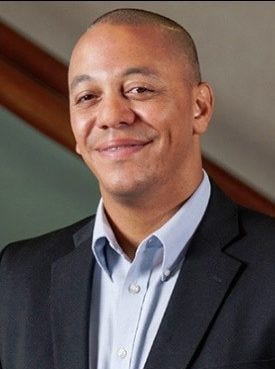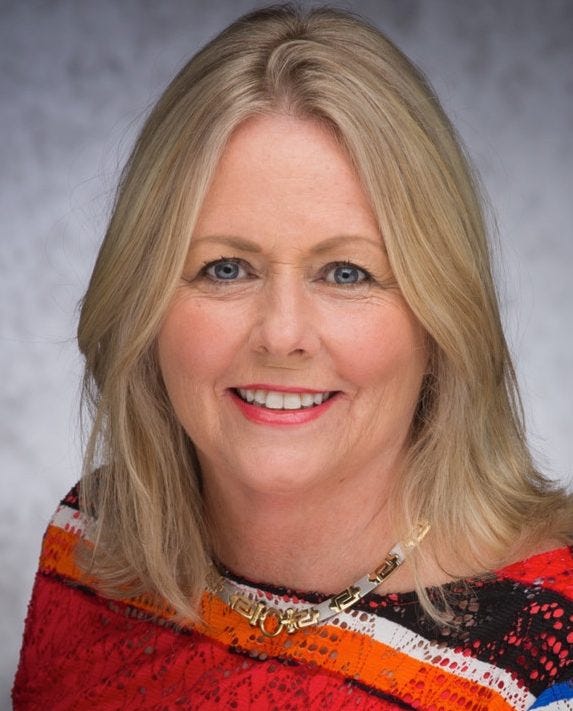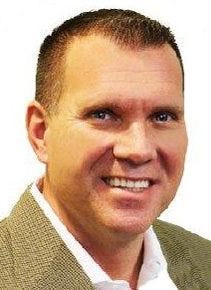Agents Face M&A, Vendor Challenges, 'Battle for the Soul of the Channel'Agents Face M&A, Vendor Challenges, 'Battle for the Soul of the Channel'
"Your time is valuable, your expertise is incredibly valuable, if you're doing audits and giving away your expertise, you need to be charging for that," Lucas Salvage said.

CHANNEL PARTNERS CONFERENCE & EXPO, LAS VEGAS — Hybrid work, channel conflict, vendor relations and the rise of “super-agencies” are just a few challenges facing technology advisory firms in 2022.
An all-star panel of partner entrepreneurs shared their insights on the channel onstage at the Channel Partners Conference & Expo. The panel feature Dave Dyson, chief communication strategist at Eclipse, Michelle Hyde, president of Hyde Group, Lucas Salvage, chief revenue officer at Kairos Data Communications, Mark Venuto, chief operating officer at US Network and Kathleen Waters, founder and CEO at Creekview Group.
Enterprise
Agents are gaining more and more traction upmarket, and they’ve done it through a variety of strategies. For example, Michelle Hyde’s small shop relies on teamed selling. She said she relies heavily on partnerships to make help meet her clients needs. Venuto’s firm has bolstered its back office to ensure larger customers get all the attention they need.
These enterprise customers are a different beast, the partners said. Not only do they have more needs, but timing is a challenge. Venuto said deals will take much longer to process, and thus, commissions will take much longer to receive.
“I’ve always struggled with asking the distributors and TSBs, ‘I’m going to work on this deal for the next 18 months; can I have some of your highly paid engineers for the next year and a half?'” Dyson said.

Eclipse’s Dave Dyson
To Charge or Not to Charge
Many of the partners who have moved upmarket have also embraced charging their customer for their consulting. Salvage said the organizations he worked for historically did charge customers for consulting. However, he said he is taking a very different approach at Kairos. That’s due in part to the fact that he is going up against very different competition than before. Whereas he previously competed against direct sales teams for customers, now Salvage is competing against companies like Deloitte and Arthur Anderson. These companies charge for their consulting, and indeed, many of these customers expect to pay their technology advisers.
“Your time is valuable, your expertise is incredibly valuable and my personal feeling is that if you’re doing audits and giving away your expertise, you need to be charging for that. Because you start to think about becoming sticky within an organization or client,” Salvage said.

Kairos Communications’ Lucas Salvage
But charging isn’t just for the enterprise-focused agent. Waters said it’s possible to……. charge SMB clients as well. Waters said the agents who function as a strategic advisers most definitely deserve to get paid for what they do.

Creekview Group’s Kathleen Waters
“If you can sit with a client and create a road map for where they’re looking to get to, then yes, I believe you can create a pay-for-services model. Because they need you more than anybody, and they don’t have the resources internally to be able to source all these different projects,” she said.
Vendor Relations
The partners shared their advice for vendors in the room.
Salvage told Channel Futures last year that 75% of his vendor portfolio underperforms on deployments, putting his project management team on the hook to fill in massive customer service gaps. He urged vendors to ensure that they double down on supporting the customer lifecycle, from pre-sales to support. For partners who function as the customer interface for the technology provider, vendor support reflects directly on the partner’s services.
“The better you do at supporting the customer, the better you’re implementing for our organizations, the more opportunity you’re gonna get,” he said said.
Hyde, who relies heavily on direct teaming, said she wishes vendors better understood sales enablement.
“If you want me to sell your product, enable me to sell your product. Arm me to the hilt with what it is that you do, where you play and where the niches are. And then also support me through that effort,” Hyde said.

Hyde Group’s Michelle Hyde
Partners agreed that they are seeing more “shenanigans” from direct sales teams in terms of trying to take customers from agents. Dyson warned the audience that channel conflict may remerge as the economy approaches a downturn.
“When those things happen macro economically, we start to see more friction between direct and indirect,” Dyson said.
Private Equity
The panel touched on the “800-pound gorilla riding an elephant in the room,” as Dyson put it. And that elephant-riding gorilla is private equity. Partners agreed that outside investors are eyeing the technology advisory space. Heavy hitters in both the agent and MSP channels addressed the partner audience the day prior.
Dyson said everyone on stage knows someone who has sold their business in the last 60 days.
The panelists urged fellow partners to consult their attorneys and make sure they know what their goals are.
“First off, you don’t have to sell your business. Just because you are approached doesn’t mean, ‘Oh, today’s the day I have to sell it,'” Waters said.
Waters said a variety of factors influence whether or not a partner should sell. Are they looking to retire? If not, are they looking to retain control over their business? Do they need an additional investment to obtain the scale they want?
“Make sure if you’re not looking to sunset that you’re not giving away the shop and that you are able to maintain control and whatever kind of cash that comes your way when you need it, because you want to grow your business,” Waters said.
Dyson said the channel is facing a battle for its very soul…… as it receives more and more recognition and resources from outside the industry. Many of these partners launched their firms after leaving direct sales jobs at carriers. They left

US Networks’ Mark Venuto
because they wanted to provide vendor-agnostic solutions, and they wanted to provide them in the way customers wanted.
“We have built our businesses on being patient and customer-focused with no arbitrary deadlines or quotas,” he said.
“Super agencies” like Upstack and Bluewave have emerged in the last year, leveraging private equity to bring together multiple agencies. Upstack, for example, has purchased more than 20 agencies. Can the one-person shop compete with this super agency?
Salvage said it might require leveraging the TSBs more.
“I think you’ve got to learn how to leverage the TSBs, their resources, their engineering and their back office, if you’re going to compete with these massive super agents,” he said.
Venuto said most TSBs are offering the back-office support partners need. Moreover, he said their channel managers are getting brighter and better equipped. Waters said partners would benefit from more QBRs in which TSBs discuss business goals with subagents.
“Let’s have a sit down to figure out where I am meeting my specific goals annually and where I am in achieving them, and then putting additional resources to my practice so that I can grow my revenue to meet my goals,” she said.
Hybrid Work
Businesses across the country have embraced remote and hybrid work as the standard going forward, and partner firms especially have embraced moved away from the office.
Venuto said his company moved away from the pre-pandemic model of frequent travel to in-person meetings. Venuto said the constant flying and driving to business lunches proved to be inefficient once video conferencing took over in 2020.
“We moved away from that and really adapted to the Zoom world across the board. And that really helped us create a different culture within our company and to reach more new clients across the board,” Venuto said.
Dyson sold his company office and bought a van. He visited clients in different states during his gradual journey to Las Vegas for the show.
“Three years ago if I said to my team, I’m moving into a van and closing the office, I would have ended up in a straightjacket. Now it’s a thing people do,” Dyson said.
Want to contact the author directly about this story? Have ideas for a follow-up article? Email James Anderson or connect with him on LinkedIn. |
Read more about:
AgentsAbout the Author
You May Also Like


